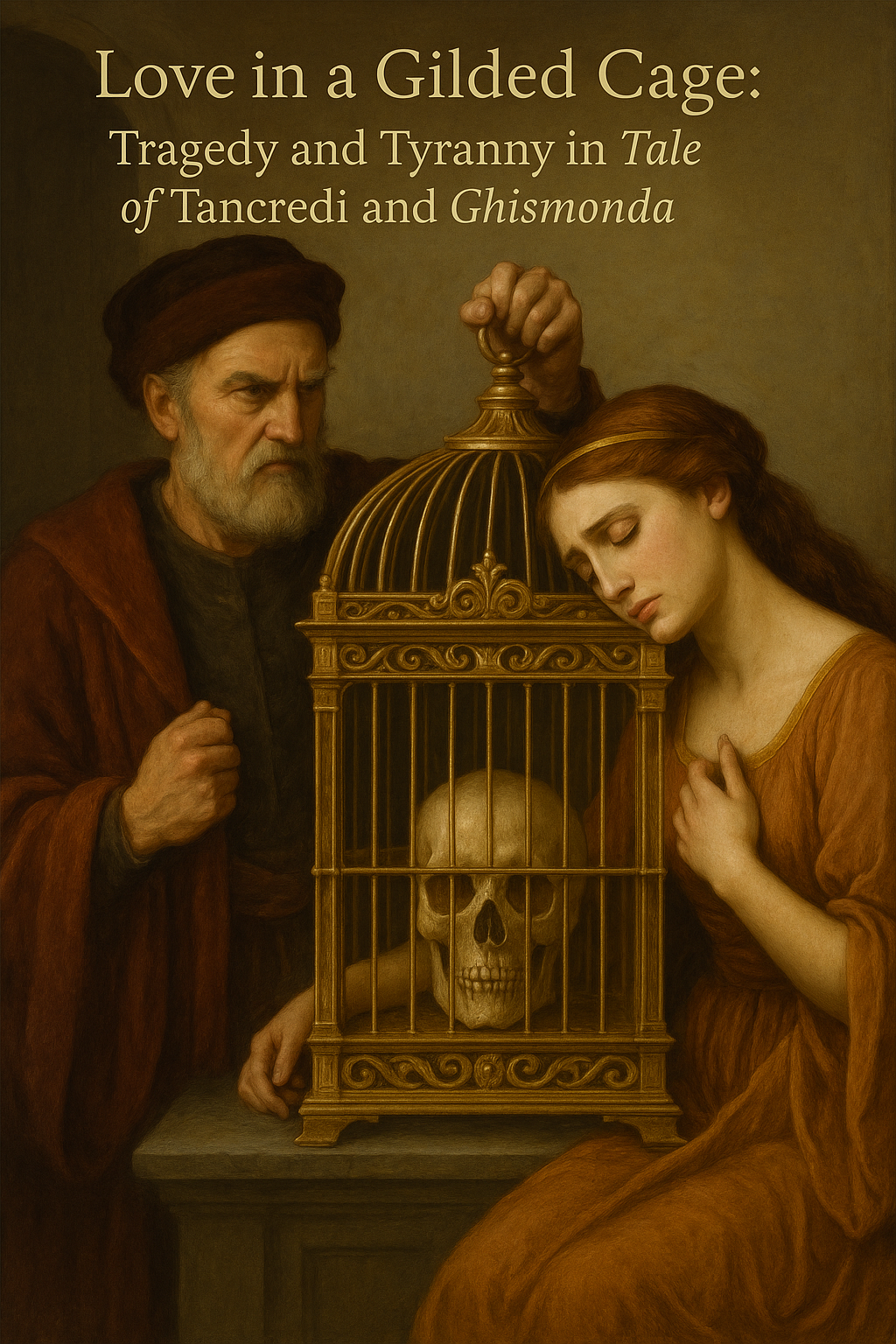Love in a Gilded Cage: Tragedy and Tyranny in the Tale of Tancredi and Ghismonda

Introduction:
Day 4 of The Decameron is dedicated to stories with tragic endings, and it opens with a powerful tale of forbidden love and fatal consequences. In the story of Tancredi and Ghismonda, Boccaccio delivers a harrowing account of a father’s control over his daughter’s life—and how that control ultimately destroys them both. The tale forces readers to consider the dangers of obsession, possessiveness, and moral hypocrisy.
Summary:
Prince Tancredi of Salerno dotes obsessively on his daughter, Ghismonda, who is left a widow at a young age. He delays remarrying her, wanting to keep her close. But Ghismonda secretly takes a lover—Guiscardo, a man of lower social rank. When Tancredi discovers them, he has Guiscardo killed and sends his heart to Ghismonda in a golden goblet. She drinks poison from the cup and dies beside it, leaving behind a letter condemning her father’s cruelty.
Analysis:
This story reads like a Shakespearean tragedy centuries before its time. Boccaccio crafts a tale where love defies social expectations, but patriarchal power ultimately crushes it. Tancredi's inability to see Ghismonda as an autonomous adult reveals a toxic blend of love and control. He claims to act out of paternal care but becomes the architect of his daughter’s doom.
Guiscardo, though humble in rank, is noble in love. His silent acceptance of death contrasts with Tancredi’s vengeful pride. Ghismonda’s final act—drinking poison from the goblet containing her lover’s heart—is both romantic and horrifying. It symbolizes how deeply her fate was bound to the man she chose and how little agency she truly had under her father’s watch.
The tale is filled with powerful imagery: the heart in a cup, the locked tower, the final letter. These symbols enhance its tragic weight and reinforce the idea that love, when imprisoned, either withers or ends in death.
Personal Response:
This story struck me with its emotional intensity and the timeless theme of love versus societal expectation. Ghismonda's rebellion is courageous, but her end is heartbreaking. Tancredi’s grief in the end feels hollow—he mourns the daughter he destroyed. The story left me thinking about how often love is sacrificed on the altar of control, and how parental love can become a prison.
Conclusion:
The tale of Tancredi and Ghismonda is a poignant exploration of love, honor, and the consequences of patriarchal power. Boccaccio doesn't offer easy answers—he simply shows us what happens when love is caged instead of nurtured. Even today, this story warns us about the cost of ignoring a person’s right to choose their own path.







